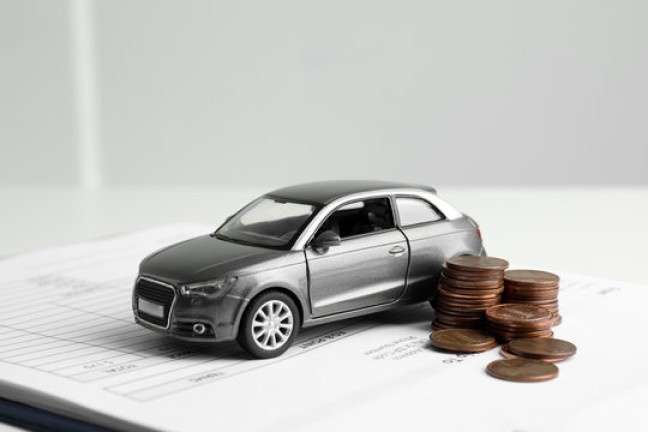When I first considered being a guarantor for car finance, I didn’t fully understand what it would mean for me. I knew the basics—helping someone secure a loan by vouching for their ability to repay. But there were so many details I hadn’t considered. Over time, I learned that being a guarantor can come with benefits, risks, and responsibilities, all of which need to be carefully weighed before I commit. In this article, I want to share my understanding of what it means to be a guarantor for car finance and why it’s not a decision to be taken lightly.
Table of Contents
What Does Being a Guarantor Mean?
A guarantor is someone who agrees to take responsibility for a loan if the primary borrower fails to make payments. In the case of car finance, this typically means that I’m vouching for the borrower’s ability to pay for their car loan. If they can’t pay, the lender will come to me to cover the loan. It’s not a casual arrangement—it comes with serious financial implications.
Why Would Someone Need a Guarantor for Car Finance?
For some people, securing car finance can be difficult due to their credit history or lack of a steady income. As someone who has experienced financial challenges in the past, I can understand why a borrower might need a guarantor. The primary borrower might have a low credit score, no credit history, or a history of missed payments. In these cases, lenders may hesitate to approve the loan without someone to back them up.
If I agree to be a guarantor, the lender is essentially reassured that the loan will be repaid, even if the primary borrower defaults. This may make the difference between the borrower getting approved or not.
What Are the Responsibilities of a Guarantor?
It’s important to understand what I’m signing up for as a guarantor. If the primary borrower misses payments or defaults on the loan, the lender can hold me responsible for the remaining debt. This means the loan terms, including the interest rate, amount owed, and payment schedule, will become my responsibility.
Here’s where things get tricky. If I am unable to pay, my own credit could be impacted. The lender may take legal action to recover the money. As a guarantor, I may also be required to pay any additional fees, including late payment charges, on top of the principal loan balance.
Example of How a Guarantor Works
Let’s break down an example to make things clearer. Assume that the primary borrower, let’s call them Person A, has a car loan of £10,000 at an interest rate of 5% per year. The loan term is 5 years. Person A misses a payment after a few months, and the lender approaches me, the guarantor, to cover the missed payments.
The monthly payment on a loan of £10,000 at 5% over five years is around £188. If Person A misses a payment, the lender can ask me to pay the £188 plus any late fees. If the loan is in default, the entire £10,000 may be due immediately, and I will be responsible for that amount.
Risks of Being a Guarantor for Car Finance
One of the most significant risks of being a guarantor is the possibility of being financially liable for the loan. If the borrower fails to make payments, it could lead to severe financial strain on me. Beyond the immediate responsibility of covering missed payments, my credit score could also be affected. The lender may report any missed payments to the credit bureaus, which could make it harder for me to secure loans in the future.
Additionally, if the loan defaults and I am unable to pay, the lender can take legal action to recover the funds. This could include garnishing wages or putting a lien on my property. It’s essential to understand that as a guarantor, I am not a passive participant in the loan agreement. My financial health is directly tied to the borrower’s ability to repay the loan.
Benefits of Being a Guarantor
While the risks are significant, there can also be benefits to being a guarantor. The primary benefit is that I’m helping someone who might not otherwise be able to get car finance. This could be a family member or friend who needs my support. If the borrower repays the loan as agreed, my involvement may be limited to providing the initial guarantee, and I may never need to step in financially.
In some cases, being a guarantor can also strengthen relationships. Helping someone secure a car loan may be a significant way to show support. If the borrower is responsible, there’s a chance that they’ll honor their obligations and you won’t be called upon to pay. In this way, being a guarantor can be a way to build trust and strengthen connections.
What to Consider Before Becoming a Guarantor
Before agreeing to be a guarantor, I had to consider a few essential factors. The first thing I had to assess was the financial stability of the borrower. Do they have a history of making payments on time? Are they likely to default? If I’m being honest with myself, I needed to gauge how well I trusted this person to uphold their end of the bargain.
Next, I had to evaluate my own financial situation. Would I be able to afford the payments if the borrower couldn’t? Could I handle the potential consequences if the borrower defaulted? Being a guarantor could lead to financial hardship if things don’t go as planned.
How to Minimize the Risks of Being a Guarantor
If you do decide to become a guarantor, there are ways to minimize the risks. First, I recommend that both you and the borrower have a clear understanding of the loan terms. Be sure you know the interest rate, monthly payment, and total amount owed. This will help you understand exactly what you are committing to.
It’s also wise to maintain an open line of communication with the borrower. If they begin to struggle with payments, you should be notified right away so that you can step in early to prevent the situation from worsening.
Additionally, consider setting up a formal agreement with the borrower. This can outline how you’ll be repaid if you have to step in and take over the loan. This agreement can provide peace of mind and ensure that everyone is on the same page.
Example Calculation of Loan Repayment with a Guarantor
Let’s assume that the borrower takes out a £10,000 car loan with a 5% annual interest rate over five years. The monthly payment would be approximately £188. Over the course of five years, the total repayment would be:
- Principal loan amount: £10,000
- Interest paid: £1,159
- Total loan repayment: £11,159
If the borrower defaults after one year, I, as the guarantor, could be required to pay the remaining balance. This would include the £8,000 remaining on the loan, plus any additional late fees and penalties. If I am unable to pay the £8,000, the lender could pursue legal action against me.
Alternatives to Being a Guarantor
If I’m not comfortable being a guarantor, there are alternatives that both the borrower and I can explore. For example, the borrower might consider applying for a car loan with a co-signer instead. A co-signer is similar to a guarantor but generally has more responsibility. A co-signer is responsible for the loan from the beginning, whereas a guarantor is only called upon if the borrower defaults.
Another option is for the borrower to work on improving their credit score before applying for a car loan. This could increase their chances of approval without the need for a guarantor. Alternatively, the borrower could consider saving for a larger down payment to reduce the loan amount needed.
Conclusion
Being a guarantor for car finance can be a significant responsibility. Before agreeing to help someone with a loan, it’s essential to understand the potential financial risks and weigh them against the benefits. If you decide to move forward, ensure that you have a clear understanding of the loan terms, maintain open communication with the borrower, and have a strategy for managing potential default situations. By carefully considering all the factors involved, you can make an informed decision about whether being a guarantor is the right choice for you.





